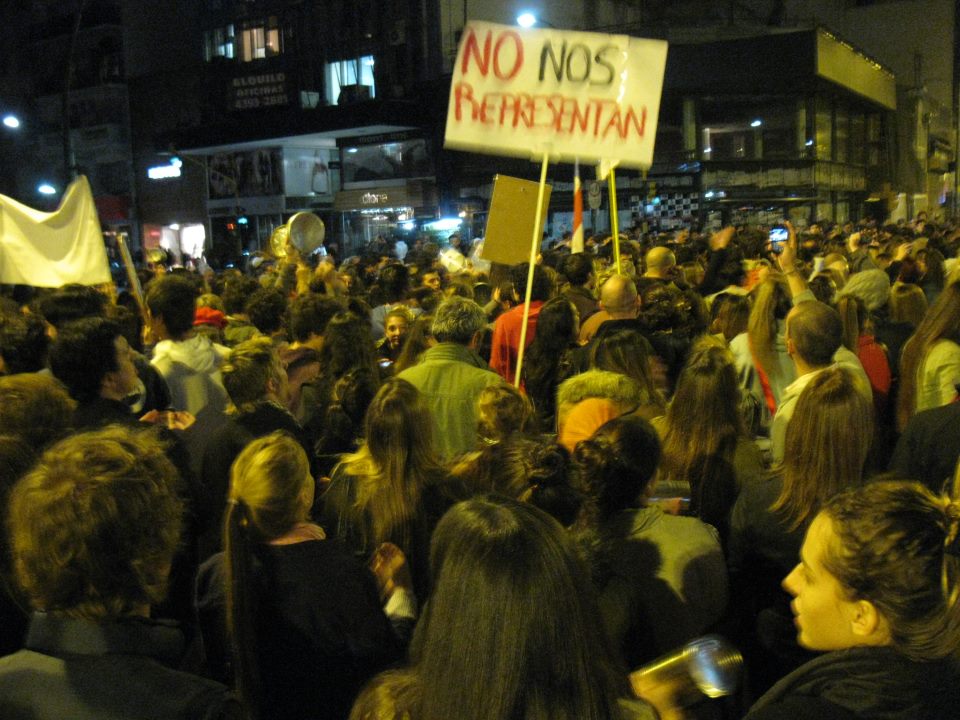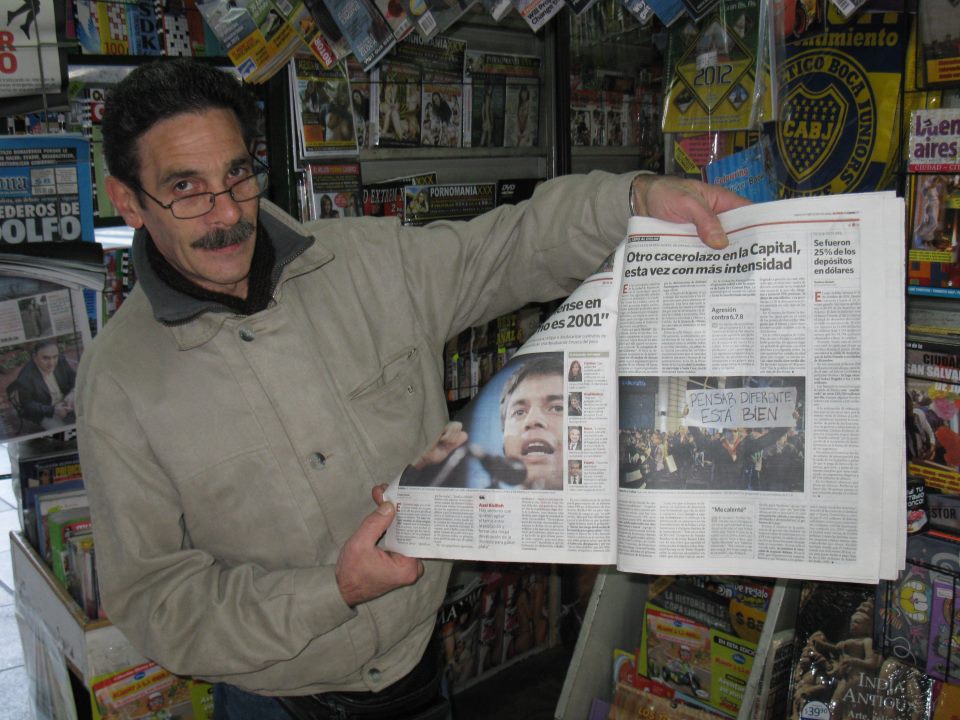The cacerolazo has returned as social protest to Argentina with a vengeance – three rallies in a week and Café Pacific was at one of them along with other media. This Latin-American brand of protest where people bang pots and pans – usually over poverty and economic human rights issues – began on May 31 when the CP publisher was actually celebrating his birthday at Rio’s Copacabana. The following day he flew to Buenos Aires and was caught in the middle of Cacerolazo 2 on June 1 at the intersection of Santa Fe and Callao where about 2000 people gathered and then marched on the Plaza de Mayo. Finally, Cacerolazo 3 on June 8 attracted thousands who protested at the central plaza (around the city’s spectacular Obelisk).
But unlike the spontaneous and famous cacerolazo of 2002 when middleclass demonstrations over the devaluation of the peso ousted the government, the current social democrat government of President Christina Fernández de Kirchner seems solidly in control at the moment.
The mainly middleclass protesters are alarmed over currency controls that affect travel abroad and are aimed at curbing the outflow of US dollars from the economy. Protesters are also angry about fiscal taxation reforms that will triple rates for property and land owners and allegations of corruption. Farmers are also protesting over the land tax reforms.
At one cacerolazo protest, three journalists working for the public television current affairs programme were assaulted, prompting complaints by media freedom groups. The assaulted Television Publicá journalists from the 6, 7,8 programme were named by the Buenos Aires Herald as as Lucas Martinez, Sergio Loguzzo and Ezequiel Schneider. This was reported by Pacific Media Watch.
A local senator, Anibal Fernández, enraged protesters with statements reported in the media that exposed his hypocrisy and, by implication, that of other lawmakers.
According to Global Voices website, which reported on the cacerolazos, when Senator Fernández was asked why he had his savings in US dollars while he asked citizens to “think in pesos,” he replied: “Because I feel like it. Didn't you hear me? Because I feel like it, it is my right, I do as I please with my money."
On Twitter Claudia Rucci (@claudiarucci) reacted to the senator's statements:
Anibal Fernandez, with his remarks, is a great mobiliser of the masses… of others. Every word is an invitation for a #cacerolazo. What does he want?
The protests have been fuelled by Twitter mobilisation and updates with the hashtag #cacerolazo
* Wikipedia describes a cacerolazo or cacerolada as a form of popular protest practised in certain Spanish-speaking countries – in particular Argentina, Chile and Uruguay – which consists in a group of people creating noise by banging pots, pans, and other utensils in order to call for attention. What is peculiar about this type of demonstration is that the people protest from their own homes, thus achieving a high level of support and participation.
Argentina's pot-banging protests
Pacific Media Watch on the media assault


This work is licensed under a Creative Commons Attribution-NonCommercial 3.0 New Zealand Licence.




